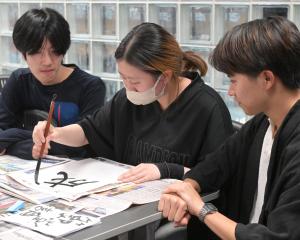
University of Otago Dunedin School of Medicine diabetes specialist and Dunedin Hospital paediatric endocrinologist Prof Ben Wheeler said the technology had advanced to the point where the CGMs could be linked with the insulin pump, and when blood glucose levels rose too high, it could send a message to the pump asking it to deliver more insulin.
Effectively, the new technology was an artificial pancreas, which provided better-controlled blood glucose levels.
However, he said safety and engagement had been key barriers, preventing the promotion and uptake of the technology in young people — particularly those with very unhealthy diabetes.
Prof Wheeler hoped to change perceptions of the technology with his recently released research, "unequivocally" showing major benefits of automated insulin delivery for young people with type-1 diabetes.
He said the study and its findings were "extremely important" for the millions of people worldwide living with type 1 diabetes, and more people needed to benefit from the transformative technology.
The research group recently published its latest findings in the New England Journal of Medicine, Evidence.
The 80-person, 13-week randomised trial, involved 7- to 25-year-olds who were struggling to control their glucose levels.
Participants were divided into an automated insulin delivery group and a control group (with usual care).
The researchers found automated insulin delivery significantly reduced glucose levels compared with usual diabetes care, without creating low blood sugar or increasing other adverse events.
"As far as we are aware, these are the largest published benefits, ever, in a randomised controlled trial for glucose regulation.
"This will be life changing and we expect clinical practice to change worldwide," Prof Wheeler said.
Traditional type-1 diabetes treatment involves pricking fingers multiple times per day to check blood glucose levels, injecting insulin manually, and monitoring diet and exercise, to make sure blood glucose does not get too high or too low.
In comparison, automated insulin pumps use a continuous glucose monitor to analyse levels, and a pump with a computer-controlled algorithm to administer insulin as required.
Uptake of the technology would be most beneficial for people with poorly controlled diabetes.
He said another finding of the study was that the use of automated insulin delivery led to improvements in psychosocial outcomes, including behaviours related to fear of hypoglycemia, diabetes treatment satisfaction and perceived diabetes control.
"Automated insulin delivery systems have potential to alleviate diabetes burdens not only for people with type-1 diabetes faced with the daily therapy demands, but also their families."












